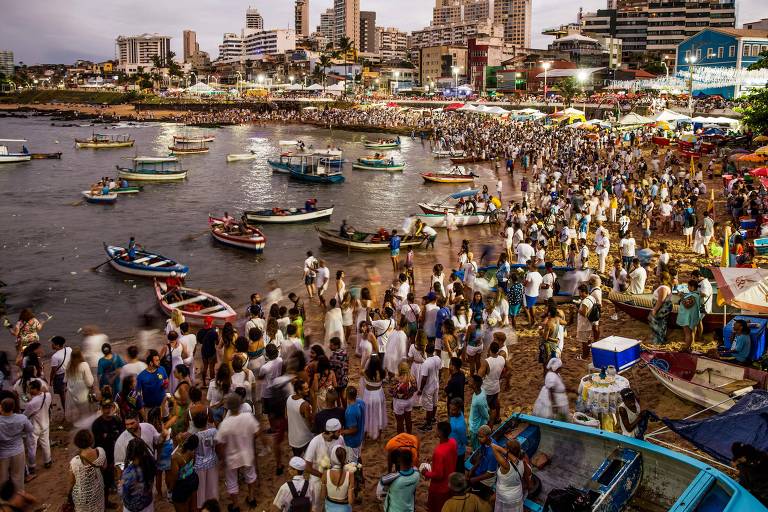The celebrations of Iemanjá, observed along most of the Brazilian coast on February 2nd with the offering of gifts to the orisha, are taking on a more ecological dimension. As the festivities have grown in popularity and now attract people who are not practitioners of Afro-Brazilian religions, there is a growing concern about the waste left on the beaches after the rituals, which ultimately ends up in the sea. Religious leaders from Candomblé and Umbanda have initiated a movement to raise awareness among participants about environmental issues. This includes beach cleanup initiatives and requests for Iemanjá offerings to be biodegradable, avoiding plastic, metal, or glass materials.
One of the advocates of this movement is the anthropologist Rodney William, a babalorixá from the Ilê Obá Ketu Axé Omi Nla terreiro in Mairiporã (SP). Living between São Paulo and Salvador, William participates annually in the centuries-old Iemanjá celebration in Rio Vermelho, noticing an increase in participants. In 2023, the celebration saw around 400,000 visitors, a significant turnout after the pandemic hiatus. Following research on the environmental impacts of waste from the celebrations, conducted by the babalorixá in collaboration with biologists and sustainability experts, guidelines were developed to promote a collective commitment to making the festival more sustainable.
One key aspect is the replacement of traditional offerings to the orisha, such as perfumes, soaps, combs, mirrors, and dolls, with offerings like flowers, aromatic herbs, and food that can be absorbed by nature without polluting the sea. Even traditional baskets and small boats used to send gifts to the sea can be made from more sustainable materials like straw and natural fibers.
